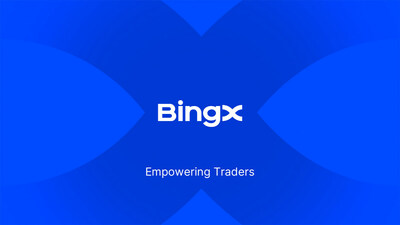Fintech PR
Mastercard partners with tonik, Philippines’ first digital-only neobank, to accelerate financial inclusion

Mastercard today announced a new partnership agreement with tonik, a two-year-old startup which recently received a bank license in the Philippines. Through this partnership, Mastercard will further enhance tonik’s market proposition by enabling the latter to issue a range of electronic payments products that taps into Mastercard’s global network and extensive business intelligence when tonik launches operationally later this year.
Internet penetration in the Philippines is at 67 percent[1], and one third of the population is millennials[2]—many of whom are digital natives. However, according to the 2017 Financial Inclusion Survey by Bangko Sentral ng Pilipinas (BSP), over 70 percent of the country’s population is unbanked[3]. At the same time, 60 percent of Filipinos who are either in the formal banking system or can become part or the system, are willing to use offerings that are digitally focused[4]. Achieving financial inclusion by leveraging financial technology has been top on the agenda for Bangko Sentral ng Pilipinas, which has set the goal of doubling the number of Filipinos with formal bank accounts by 2023[5].
Driving digital financial inclusion and expanding access to formal financial services for the unserved and underserved population is one of the cornerstones of tonik’s proposition. As a mobile-only digital bank, tonik is able to develop highly customized, scalable banking solutions that fit the needs of a customer base that is incredibly diverse, ranging from people who are just making their first forays into the formal banking system, through to customers who have held accounts and used financial products for most of their adult lives. Because of its digital-first approach, tonik is well placed to meet consumers’ needs and demands irrespective of where they live, work and do business.
“We want to empower the underserved and unserved Filipinos by giving them simple, accessible, and fast digital banking experiences. We want our customers to easily gain familiarity with transacting and banking digitally in order to help them harness the full potential of the rapidly changing digital economy. Our partnership with Mastercard is about injecting more speed, scale, and performance into all facets of our business. Having immediate access to Mastercard’s global payment network, safety & security technology, data and analytics services, AI technology, and cybersecurity capabilities will be essential to tonik’s growth and success in today’s digital-first reality,” said Greg Krasnov, CEO & Founder, tonik.
Orchestrating this partnership is Mastercard Fintech Express, a tailored program which provides fintechs such as tonik with increased speed-to-market, access to a suite of digital-first products, and a cross functional team of experts to provide strategic counsel and advisory across product, partnerships, licensing and legal to be able to successfully build their offerings.
“The entire payments ecosystem thrives when fintechs have access to the technology they need to reach scale and make finances widely accessible. tonik exemplifies an agile and innovative fintech whose ambition of driving financial inclusion in the Philippines through digital-first products and seamless consumer experiences is closely aligned with Mastercard’s mission to connect and power an inclusive, digital economy that benefits everyone. tonik’s ability to secure a bank license as a startup is nothing short of exceptional and Mastercard is delighted to partner with them to enhance the Philippines’ digital banking space and to boost the nation’s financial inclusion journey,” said Rama Sridhar, Executive Vice President, Digital & Emerging Partnerships and New Payment Flows, Asia Pacific, Mastercard.
tonik will launch with a full range of banking services including a transactional savings account with a debit card, savings and term deposit accounts with attractive interest rates, as well as a range of consumer loans in Q3 2020. Debit Mastercard cards will be available to customers at the end of the year and will allow customers to transact and withdraw cash from everywhere Mastercard is accepted. Additional services such as loans, credit cards, and fund transfer categories will be made available in the course of 2021.
Fintech PR
BingX Joins NBX 2025 as a Gold Sponsor: Empowering Blockchain Innovation

PANAMA CITY, March 15, 2025 /PRNewswire/ — BingX, a global leading cryptocurrency exchange, is excited to announce its participation as a Gold Sponsor at the 5th edition of Next Block Expo (NBX), scheduled for March 19-20, 2025, at Multikino Złote Tarasy in Warsaw, Poland. As one of Europe’s premier Web3 events, NBX 2025 is expected to attract over 2,000 attendees, making it a key platform for blockchain innovation and collaboration.
NBX serves as a dynamic hub for industry leaders, startups, investors, and developers, fostering knowledge-sharing and networking opportunities to drive the future of blockchain. As a firm advocate for Web3 advancements, BingX will showcase its ongoing commitment to innovation through an interactive booth, featuring engaging activities, expert insights, and exclusive giveaways. Attendees will gain firsthand knowledge of how BingX supports high-potential blockchain projects with financial backing, technical expertise, and strategic growth consultations.
In addition to its sponsorship, Vivien Lin, Chief Product Officer of BingX, will be a key speaker at NBX 2025, contributing to discussions on strategic trading approaches, risk management, and the evolving landscape of blockchain investments. She will also deliver a keynote speech exploring BingX’s vision for blockchain innovation and how the company translates emerging technologies into real-world applications.
“At BingX, we believe that true innovation comes from bold ideas and strategic execution,” said Lin. “Sponsoring NBX 2025 is more than just a presence for us — it’s a commitment to fostering a thriving blockchain ecosystem. We are here to connect with visionaries, provide the resources they need, and help shape the future of decentralized technology. By empowering builders and innovators, we’re not just supporting projects — we are accelerating the evolution of Web3 itself.”
BingX’s participation at NBX 2025 underscores its long-term vision of driving blockchain innovation and supporting the next generation of industry leaders. As BingX continues to expand its global footprint, initiatives like this sponsorship reinforce its role as a catalyst for growth in crypto space. By engaging with emerging projects, thought leaders, and investors, BingX remains at the forefront of Web3 advancements, bridging the gap between groundbreaking ideas and real-world impact.
About BingX
Founded in 2018, BingX is a leading crypto exchange, serving over 20 million users worldwide. BingX offers diversified products and services, including spot, derivatives, copy trading, and asset management – all designed for the evolving needs of users, from beginners to professionals. BingX is committed to providing a trustworthy platform that empowers users with innovative tools and features to elevate their trading proficiency. In 2024, BingX proudly became the official crypto exchange partner of Chelsea Football Club, marking an exciting debut in the world of sports.
For more information please visit: https://bingx.com/

Photo – https://mma.prnewswire.com/media/2642425/BingX_NBX_Event_PR_Banner_1920x1080.jpg
Logo – https://mma.prnewswire.com/media/2310183/BingX_logo_Logo.jpg
![]() View original content:https://www.prnewswire.co.uk/news-releases/bingx-joins-nbx-2025-as-a-gold-sponsor-empowering-blockchain-innovation-302402414.html
View original content:https://www.prnewswire.co.uk/news-releases/bingx-joins-nbx-2025-as-a-gold-sponsor-empowering-blockchain-innovation-302402414.html

Fintech PR
Great Bay Insurance Group announces executive changes
WEST ATLANTIC CITY, N.J., March 14, 2025 /PRNewswire/ — The Great Bay Insurance Group (the “Group”), a leading provider of coastal homeowners’ insurance in New Jersey, today announced the following leadership changes. Timothy J. Byrne, Jr., has been named as President of the Group and Ronald R. Lovatt has been named President of Great Bay Insurance Company, a wholly owned affiliate of the Group.
Mr. Byrne Jr. has nearly 15 years of industry experience and previously served as the Group’s Chief Operating Officer overseeing the Groups operations and underwriting strategies.
Mr. Timothy J. Byrne, Sr., Chief Executive Officer of the Group, added, “I’m excited to announce the promotion of Tim Jr. to the role of President of The Great Bay Insurance Group and Ron to the role of President of Great Bay Insurance Company. Tim Jr. and Ron have been an integral part of the Group since its founding in 2019.”
As President, Tim Jr. will provide oversight for all corporate support functions and will continue to report to Tim Sr.
Mr. Byrne Jr. holds a BS in Economic and Mathematics from the University of Vermont, an MBA in Risk Management and Insurance from St. John’s University and holds a CPCU designation.
Mr. Lovatt has 40 years of broad insurance industry experience in leadership capacities with international, national, regional and start-up insurance companies. Ron is a founding member of The Great Bay Insurance Group, working with Tim Sr. & Tim Jr. to launch Great Bay in late 2019. Ron currently serves as Chief Underwriting Officer & Chief Claims Officer for The Great Bay Insurance Group, has an MBA from The Wharton School of the University of Pennsylvania, and a Bachelor of Science degree in Economics, Finance, Accounting & Marketing from Miami University.
Contact:
Investor Relations
Brian Schleider, CPA
Chief Financial Officer
609-434-2000, x102
brian.schleider@greatbayinsure.com
Logo – https://mma.prnewswire.com/media/2641485/GBIH_logo_Logo.jpg
![]() View original content:https://www.prnewswire.co.uk/news-releases/great-bay-insurance-group-announces-executive-changes-302401923.html
View original content:https://www.prnewswire.co.uk/news-releases/great-bay-insurance-group-announces-executive-changes-302401923.html

Fintech PR
Forward Global responds to surge in UK shareholder activism with launch of UK Corporate Contests Practice

LONDON, March 14, 2025 /PRNewswire/ — International risk management firm Forward Global launched its UK Corporate Contests Practice on Tuesday in response to what is described as “all-time high of shareholder activism” in London and Paris.
Speaking ahead of the launch on Tuesday night, Brendan Foo, Partner and Global Head of Corporate Contests at Forward Global, said “As activism gains currency as an asset class, savvy investors are looking toward the UK and Europe to generate alpha. Indeed, in 2025 alone, we have seen an unprecedented demand for our services not just in our traditional strongholds of the US and Canada, but also in the UK and Europe. This reflects the surge in activist (and active) engagements, with which our team is uniquely well-placed to assist.”
Forward Global’s Corporate Contests Practice was established to meet demand from law firms, investors, and advisers to provide a comprehensive suite of services to support companies in high-stakes shareholder engagements. In keeping with the firm’s established activism practice in the US, the new London offering will deliver investigative and intelligence work such as vetting board nominees, relationship mapping, scrutinizing the track records of both incumbents and challengers, and conducting deep-dive reputation analyses. In Europe, Forward Global’s Patrice Lambert-de Diesbach offers clients battle-tested expertise in investor relations and financial communications.
Shareholder activism in the UK has expanded significantly, with campaigns becoming more frequent and sophisticated. In 2023, the number of new public activist campaigns in Europe surged by 68%, with the UK remaining a primary target. US-based activist investors have also increased their focus on UK firms, launching 40% of all UK activist campaigns in 2024. With contested boardroom battles and regulatory shifts on the rise, the expansion of Forward Global’s Corporate Contests practice into the UK is well-timed, equipping issuers with the intelligence and strategies needed to navigate this evolving landscape.
The firm launched the new practice at an exclusive gathering at the International Institute of Strategic Studies in London, bringing together leading voices from the shareholder activism space to discuss the evolving landscape of transatlantic shareholder activism.
The panel discussion, featuring Brendan Foo, Patrick J. McHugh of Okapi Partners, and Sebastian Fain of Freshfields, explored critical considerations for US investors entering the UK market and vice versa, differences in engagement styles across jurisdictions, and strategies for issuers to proactively engage with both activist and active investors. Panelists also examined the impact of anti-DEI and ESG sentiment on investor relations in the UK, as well as how issuers can adapt to evolving regulatory and institutional expectations.
John Watts, Managing Partner of Forward Global UK, added, “Forward Global’s new UK Corporate Contests Practice is designed to provide companies with the strategic intelligence and investigative depth needed to navigate an increasingly complex activist landscape. Our team is committed to equipping clients with the tools to engage proactively with investors, safeguard their strategic interests, and strengthen shareholder relations across Europe.”
Notes for Editors
Forward Global is an international group, with its historic headquarters in France, boasting five main offices in Paris, Brussels, London, Miami, and Washington. As a leading player in risk management with over 450 employees and 30 partners, Forward Global offers an integrated approach across the three major risks: digital, economic, and informational.
Logo: https://mma.prnewswire.com/media/2641946/Forward_Global_Logo.jpg
![]() View original content to download multimedia:https://www.prnewswire.co.uk/news-releases/forward-global-responds-to-surge-in-uk-shareholder-activism-with-launch-of-uk-corporate-contests-practice-302402058.html
View original content to download multimedia:https://www.prnewswire.co.uk/news-releases/forward-global-responds-to-surge-in-uk-shareholder-activism-with-launch-of-uk-corporate-contests-practice-302402058.html

-

 Fintech6 days ago
Fintech6 days agoFintech Pulse: Your Daily Industry Brief – March 10, 2025 | Finovifi, Modern Banking Systems, France Flowdesk, Fintech Galaxy, ProgressSoft, Finory Investment, 1337 Ventures
-

 Fintech5 days ago
Fintech5 days agoFintech Pulse: Your Daily Industry Brief – March 11, 2025: Apex Fintech, Bakkt, Stripe, PayPal, Nvidia, Shopify, Adyen, Intergiro, Seon, Infintegration
-

 Fintech PR4 days ago
Fintech PR4 days agoCBC Summit Expands to Europe, Bringing Crypto Banking, Compliance, and Payments Leaders Together in London on March 17, 2026
-

 Fintech4 days ago
Fintech4 days agoFintech Pulse: Your Daily Industry Brief – March 12, 2025 | Stax Payments, St. Pete Fintech, Credit Rewards Fintech, The Power of Time: London
-

 Fintech PR7 days ago
Fintech PR7 days agoCommercial Auto Insurance Market to Reach $390.5 billion, Globally, by 2033 at 9.1% CAGR: Allied Market Research
-

 Fintech PR3 days ago
Fintech PR3 days agoBaron Evans of Sealand and PR Guru Paul Holmes to Lead Davos Communications Summit 2025 on April 10 in Switzerland
-

 Fintech PR3 days ago
Fintech PR3 days agoCurve Secures £37M Investment led by Hanaco Ventures as the Company approaches profitability and prepares to Launch Curve Pay in 2025
-

 Fintech PR2 days ago
Fintech PR2 days agoForward Global responds to surge in UK shareholder activism with launch of UK Corporate Contests Practice
















